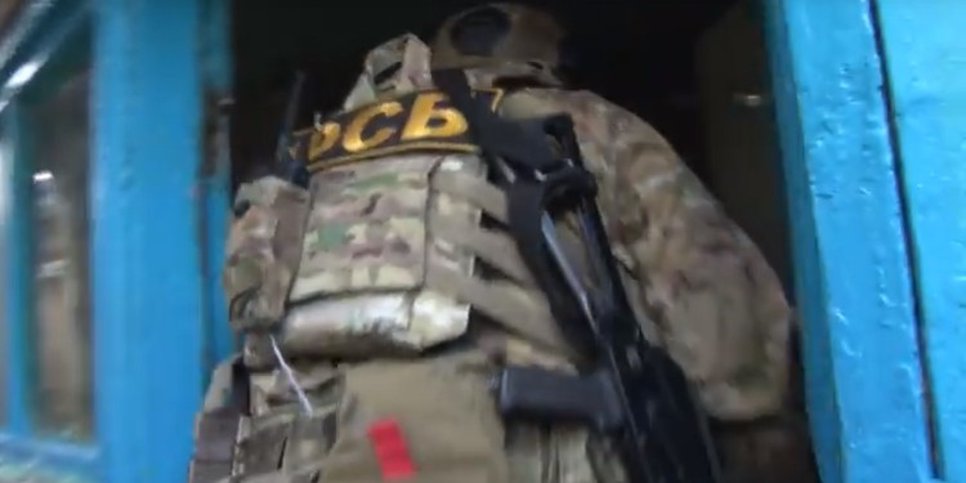Photo: Invasion of Jehovah's Witnesses in Crimea (March 2019)
Photo: Invasion of Jehovah's Witnesses in Crimea (March 2019)
On March 26, 2019, FSB investigator S. Bosiyev charged Artem Gerasimov, who was detained for interrogation during searches in 8 houses of believers in Alupka, Gurzuf and Yalta (Crimea), with organizing extremist activities (part 1 of article 282.2 of the Criminal Code of the Russian Federation). After interrogation, he was released.
According to the investigator's ruling, Artem Gerasimov's guilt lies in the fact that he held meetings of Jehovah's Witnesses, "realizing the public danger" of this. Gerasimov is also accused of "getting acquainted with literature" containing statements "degrading human dignity on the basis of attitude to religion." The investigator did not give any explanations or specific examples.
It is noteworthy that during the hearings of the case on the ban of the Administrative Center of Jehovah's Witnesses in Russia and another 395 local organizations of believers, not a single fact was heard proving that the organization of Jehovah's Witnesses inspired any real crimes. Human rights activists and other members of the public consider Jehovah's Witnesses to be a peaceful religion, which is alien to the ideas of enmity and hatred on any grounds.
After the ban on Jehovah's Witnesses organizations in Russia, including Crimea, persecution of believers began, despite the Russian government's explanation that the ban should apply only to legal entities and should not restrict the right of believers to practice this religion. Russian President Vladimir Putin also expressed bewilderment at the persecution of Jehovah's Witnesses.

